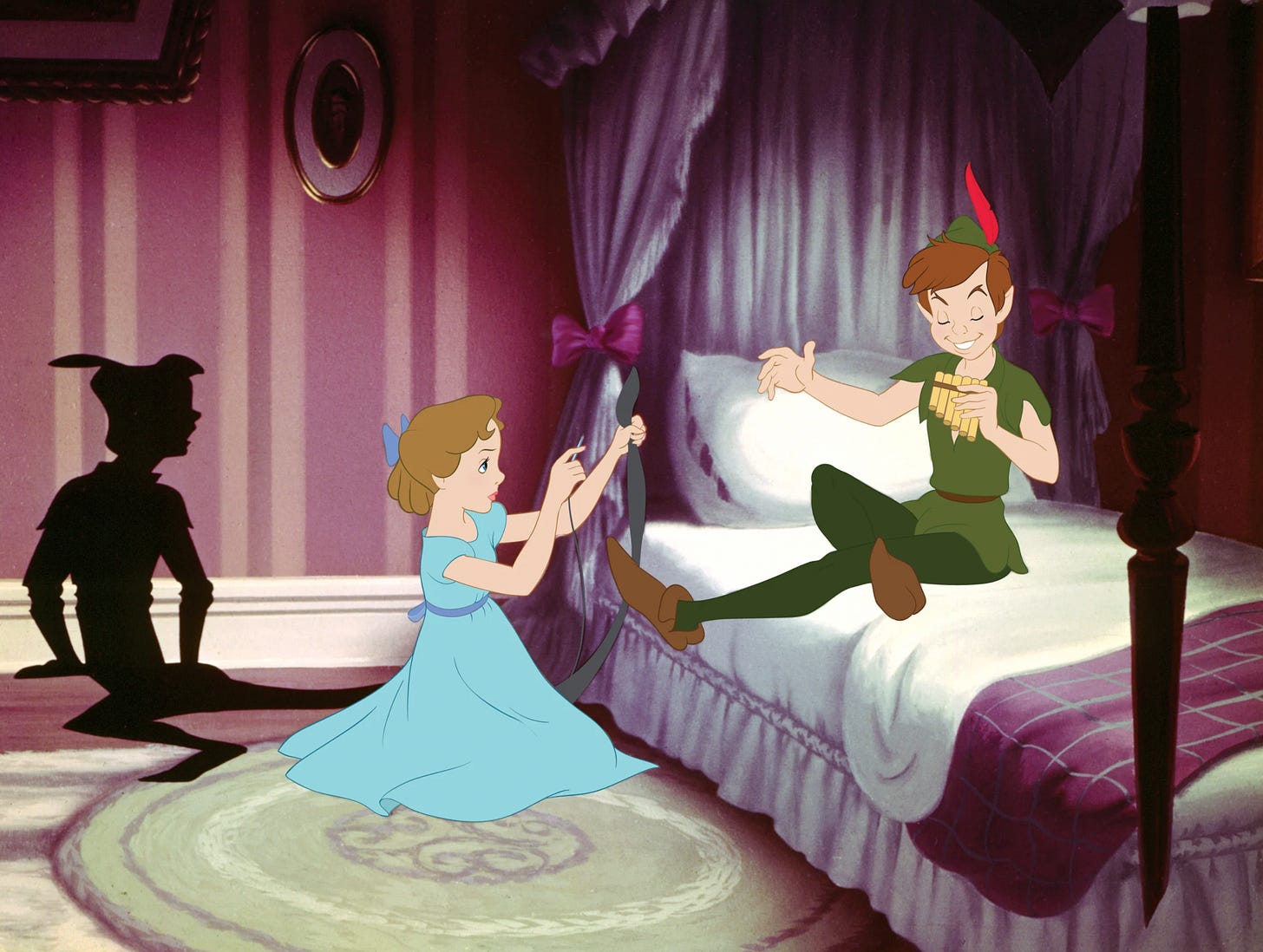#3 The real reason millennials can’t grow up.
DISCUSSED: Millennial stagnation // Bill Plotkin's Soulcraft // the pursuit of a spiritual adulthood.

Hello friends,
Millennials love to talk about how hard it is to be a grown-up. So much so that they (We? Yikes. 😬) made lamenting the difficulties of adult life into a whole subculture. Following the release of Kelly Williams Brown’s 2013 book, it even had a new name: adulting.
While the economic plight of the millennial generation has engendered much attention in public discourse (🥑), the emergence of a Gen-Z workforce has brought about a different commentary on the millennial’s glorification of being a hot mess. To put it succinctly, much of Gen-Z thinks we should really stop talking about which Harry Potter house we’re in and grow up.
I actually think they have a point, and (as a therapist, and an absolute Wendy) that growing up is a good idea. The issue though, is that most of this rhetoric has the wrong idea about why that’s so hard. I don’t think it’s about the housing market, or the job market, or even that millennials are lazy babies, but rather, the emotional conditions of the world we have grown up in.
I was deeply influenced several years ago by reading depth psychologist Bill Plotkin’s book Soulcraft, and in particular, his ideas about spiritual adulthood and soul initiation. Plotkin says that many of the ailments we suffer in the Western world are brought about by our complete lack of initiatory rites of passage into true adulthood. I think this speaks much more closely to what underlies our developmental delays.
Instead of being initiated into adulthood but a community of elders, we live within capitalist and patriarchal megastructures in which we are taught that the path to adulthood is walked through the acquisition of trophies representing an adult life - an education, a job, a wife or husband, a house, a share portfolio, a nice handbag, a new car, some children, etc., etc. ad infinitum.
In a sad twist of irony, to acquire these trophies, the average person stays perpetually in the role of a child. They transfer their deference from their actual parents to their school or training institutions, their boss, government officials, health departments, academic journals, even TikTok influencers and IKEA catalogues. They move around the world saying: “What are the rules? Tell me what I have to do to be good.” Although not exclusive to the millennial generation, this ideology is vividly expressed within it. Ron Alsop, author of The Trophy Kids Grow Up, reports: “Although they're hard working and achievement oriented, most millennials don't excel at leadership and independent problem solving. They like the freedom and flexibility of a virtual office, but they also want rules and responsibilities to be spelled out explicitly.”
In the absence of true adulthood, everything we learn is memorised from another, knowledge and sovereignty are forever outsourced outside of one’s self, and compliance becomes synonymous with goodness. No one takes responsibility for themselves, finds things out of their own accord, or comes through real experience or risk to take on the traits of a true spiritual leader or elder. The rare few who do are often driven to secrecy that negates their power or scapegoated as dangerous pariahs of an orderly society.
None of this is to say that problems relating to employment, housing, and the economy are not real problems. But without finding a way to grow up properly, “adults” will lack the courage and creativity required to solve them. Plotkin’s antidote (and thank God he has one, because what a fucking bleak picture that is) is that we must find ways, in the absence of elders, to self-initiate into real spiritual adulthood, so that we might become those elders ourselves in time.
Since reading his work, I have reframed much of my own spiritual development and my work as a therapist in these terms. That is, how can we grow ourselves up? How can we initiate ourselves into a true spiritual adulthood? He proposes various ways of doing this: self-inquiry, the cultivation of competencies, the development of a capacity to be alone, and striking up a real, honest relationship with the natural world. As a depth psychologist, much of what he suggests is thankfully also what is naturally brought about in the unfolding of a good course of psychotherapy.
Thank God at least millennials are also obsessed with going to therapy.
In love, and the humble pursuit of a shared path to a greater truth,
Kate






